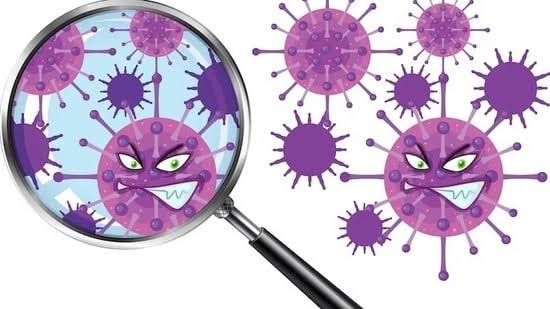Mycoses, or fungal infections, are common conditions caused by fungi that can affect internal and external parts of the body. Depending on the type of fungus and the person’s immune system, these infections can be mild or severe. Like the human body, fungi are naturally occurring microorganisms that can thrive in a variety of environments. Understanding fungal infections is the first step toward effective management and prevention, even though some fungi can be harmful to health.

Types of Fungal Infections
There are numerous kinds of fungal infections, each of which affects distinct body parts. The most typical types include:
1. Athlete’s foot, or tinea pedis, is an infection that affects the feet and causes itching, redness, and peeling skin, usually between the toes.
2. Ringworm, or tinea corporis, is a skin infection that causes a circular, red rash that can be itchy or scaly.
3. Candidiasis, or a yeast infection, can cause pain and discomfort in the mouth (oral thrush), genital area (vaginal yeast infection), or other mucous membranes.
4. Onychomycosis or nail fungi can cause thickening, brittleness and discoloration.
5. Systemic fungal infections are more serious infections that can affect internal organs and frequently necessitate medical attention.
Causes of Fungal Infection
When fungi from the environment enter the body and begin to multiply, they cause fungal infections. Some typical reasons are:
– Weak Immune System: People who have weaker immune systems are more likely to get sick, like HIV/AIDS patients, cancer patients, and people who take medications that suppress their immune systems.
– Warmth and Moisture: Fungi thrive in warm, moist environments, making certain body parts, like the feet, groin, and mouth, more susceptible.
– Close Contact: You run the risk of contracting a fungal infection if you share personal items like towels, shoes, or bedding with a person who has the infection.
– Poor hygiene: Not taking care of your own hygiene can make you more likely to get fungal infections, especially in places where they can grow.
– Tight Clothes: Particularly in hot weather, wearing clothing that is too tight can encourage fungal growth.
Signs and Symptoms of Fungal Infection
It is essential for prompt treatment of a fungal infection to recognize its symptoms. Symptoms can vary depending on the infection’s type and location, but some common ones are:
– Itching: The affected area experiences persistent itching, frequently accompanied by redness.
– Rash: A rash that can be circular (ringworm) or irregular in shape. Changes in the color or texture of the skin or nails, such as yellowing or thickening, are known as discoloration.
– Pain or Discomfort: In the infected area, pain, burning, or discomfort, especially in cases of genital or nail infections.
– Odor: A foul odor, especially when fungal infections affect the groin or feet.
General Management of Fungal Infections
Most fungal infections can be treated with a combination of changes to one’s lifestyle, over-the-counter remedies, and, in some cases, prescription drugs. Some general management advice:
– Keep the Affected Area Dry and Clean: Hygiene is very important. Wash and dry the affected area on a daily basis, and wear loose clothing that doesn’t hold in moisture.
– Over-the-Counter Antifungal Creams: Over-the-counter antifungal creams or powders can be used to treat many mild fungal infections.
– Prescription Drugs: If the infection is severe or does not respond to over-the-counter treatments, your doctor may prescribe oral creams, pills, or other antifungal medications.
– Treatment for Nail Infections: Nail infections frequently necessitate prescription medications and may take several months to completely resolve.
– Infections of the Oral Mucosa and Vaginal Yeast: Antifungal medications like lozenges or creams can be used to treat these infections.
– Systemic Fungal Infections: Hospitalization and intravenous antifungal medication are required for serious systemic infections.
The Role of Homeopathy in Fungal Infection Treatment
1. Tellurium: Effective for ringworm, herpes simplex, and itchy hands and feet; exacerbated by nighttime sleep, cold weather, friction or touch.
2. Sepia officinalis: Useful for herpes circinatus, itching worsened by bending elbows and knees; symptoms worsen in forenoons, evenings, dampness, and cold air.
3. Borax: Indicated for white fungus-like growth, hot mouth, bitter taste, and infantile crying during nursing; symptoms worsen in warm weather and improve in cold weather.
4. Sulphur: Helps with itching, worsened by warmth, recurring in spring and damp weather; symptoms worsen at night, during scratching, and improve with dry, warm weather.
5. Graphites: Suitable for rawness in bends of limbs, groins, neck, and behind ears, along with persistent dryness; symptoms worsen with warmth and at night.
6. Bacillinum: Effective against acute cases of ringworm and prevents recurrence; symptoms are worse at night and early in the morning, particularly when exposed to cold air.
7. Silicea: When nails are prone to breaking or splintering, silicea can be helpful for brittle nails or infections.

Conclusion: Say Goodbye to Fungal Infections
Although fungal infections can be treated and prevented with the right approach, they can be uncomfortable and difficult to manage. Homeopathy is a holistic and complementary option that focuses on enhancing the body’s inherent healing abilities. Conventional medicine offers effective solutions. The most important thing, regardless of whether you choose homeopathy, conventional medicine, or a combination of the two, is to get medical help right away and stick to your treatment plan. Keep in mind that good hygiene habits and taking preventative measures are necessary to lower the likelihood of fungal infections occurring in the first place. You have control over your health, and you can effectively manage and prevent fungal infections with the right advice and information.
Reach out to us for a Consultation
For any queries, reach out to us at contact@homeopathic.ai
This blog is for information purposes. It’s crucial to note that while homeopathy is a centuries-old practice with many adherents worldwide, always consult a qualified homeopath or medical professional before initiating any treatment.





